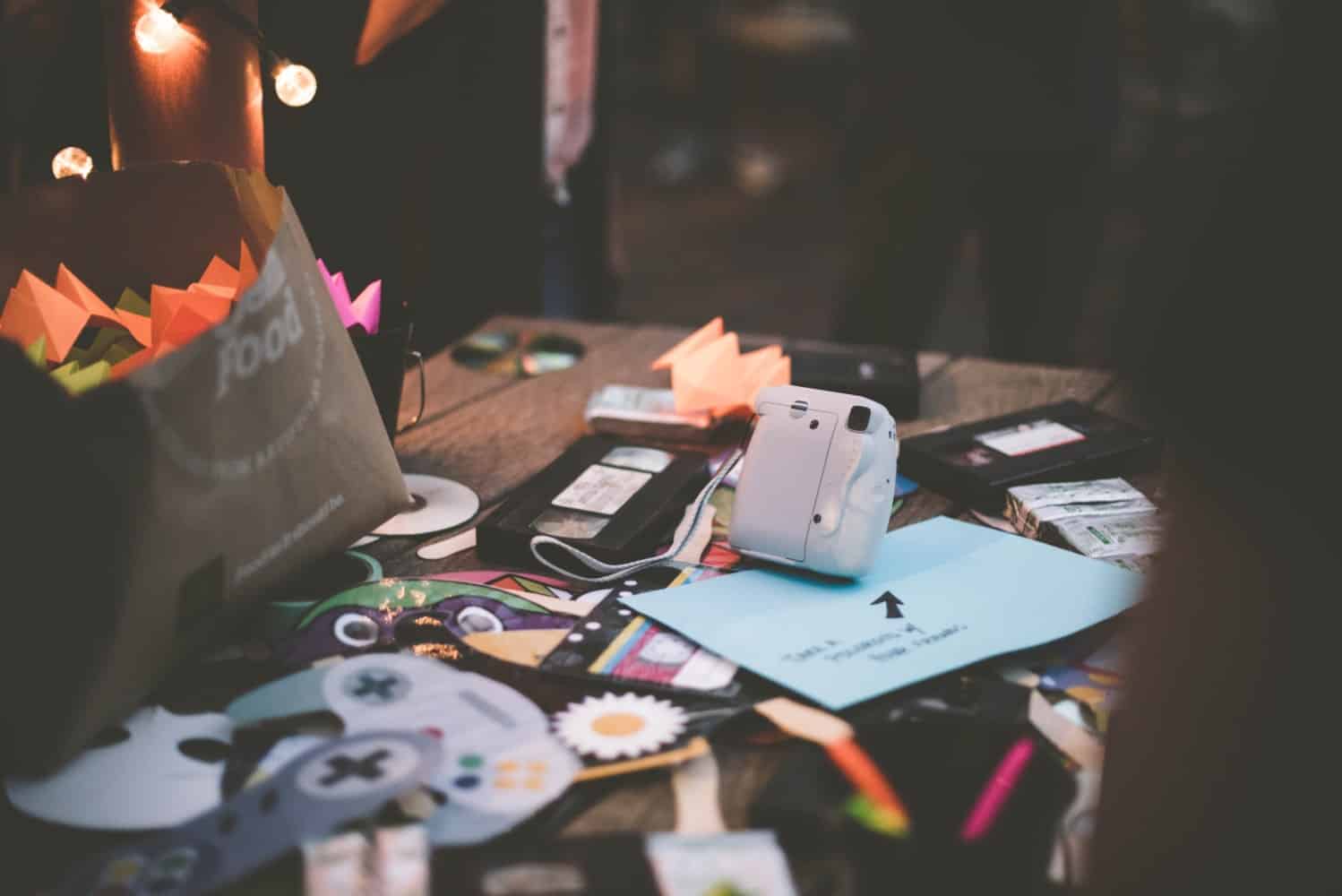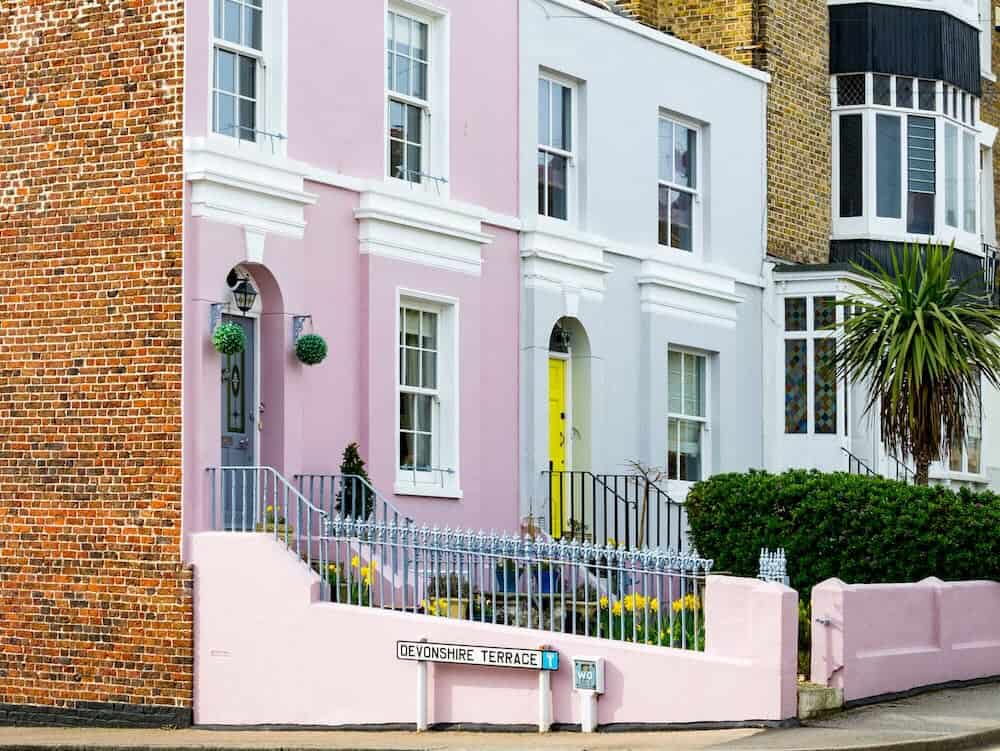
by Nick Sturgeon | Nov 15, 2019 | Simple Self Help
Years ago I often worked away from home and stayed one or more nights a week in hotels. Nothing used to make me sadder than my youngest son on the telephone saying "Are you coming home tonight Daddy?" and him not grasping the fact that I was ten hours away or even thousands of miles away. No hotel room offers real comfort, just a brief respite from the traveling and a place where you can collect your thoughts together in peace. Of course, you can be attracted to and even seduced by the hotels and the restaurants and the sense of being looked after by people who are simply doing their job when they serve you, but so what? What difference does it make to your life that you receive good service in a hotel, but you miss a child's birthday, or you don't get to attend the Parent Teachers evening, or a special anniversary is impossible to attend because of another schedule, meeting or travel requirement imposed by somewhere beyond your control.
Getting home to be greeted by the family is always a joy, even if they are unsure when you might be going away again. If in doubt, get home soon. You never get this time again with those you love.
Make a commitment to yourself to enjoy the time with those you love and then spend as much time as possible doing just that. At this stage so early in the book I am not going to suggest you make a radical change to your work or profession in order to spend more of your time in alignment with what you believe in and what your values are. But I will ask you to work out your beliefs and your values and to ask yourself if you are even close to them in your day to day activity.
Memories are made and created by the way that you live your life moment by moment so use the moments of today to build a picture you will be able to look back on with love and gratitude.
Seek out the people who seek to be with you and spend as much time as you can in their company. Each of you will always be grateful that this is what you chose to do. Your regrets will be less when you look back on these times. And by the way, these times are the only ones you have.
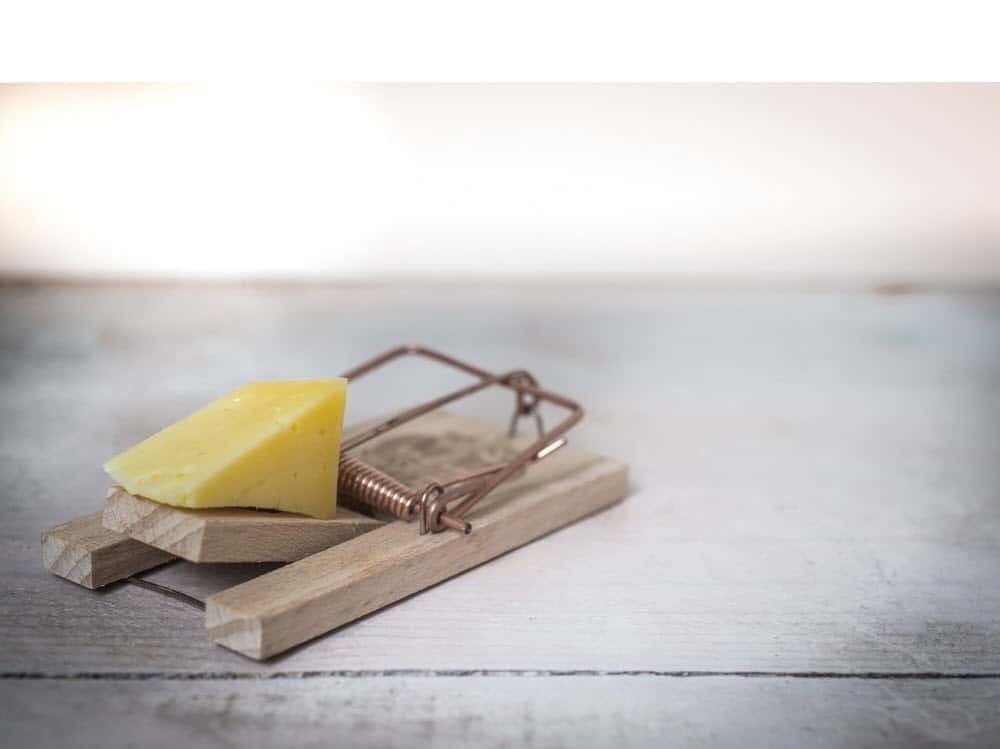
by Nick Sturgeon | Nov 7, 2019 | Declutter
At what point this past month did you think about your home and living space and wish you had less? Less clutter to hold you back, to tie you down and to hold you in one place.
Consider these very simple situations :
If the world gave you a year’s income today could you get on a flight next week and not look back to your home and possessions while you are away?
If a dear friend called you tonight and invited you to join them on the other side of the world for a three month adventure, with all your expenses paid for travel and accommodation, could you join them this weekend?
If you get into work next Monday and your employer gives you the news that your entire department is closing down, (and assuming your own finances are good and you have savings for the project) can you lock the door on your home and possessions, leaving them behind for a full month of training or education you have wanted to attend since you learned about it a year ago?
In each scenario we are assuming that the bills are taken care of, that finances are no reason for you to avoid the opportunity to enjoy yourself. If the money is not an issue and you have the confidence to take part in the adventure and you have the freedom in your calendar, why are you not doing these things?
Most households - and you might be one of them - are trapped by the burden of not being in control of their possessions. You cannot lock the door on your practical ownership of clutter and junk to take off and enjoy yourself. You couldn’t rent out your home for a longer trip, because the chaos is everywhere and way too much for a guest to live with. You can’t invite guests to stay for even a weekend due to the level of mess. You cannot relax on a long holiday for fear of the clutter that needs your mental attention (even if you rarely do anything to practically deal with it). In any of these scenarios your clutter is in control of you as opposed to you being in charge of your living space and possessions.
The freedom to be you or to live this lighter life, is about having only those belongings and possessions in your home space that you need to be happy and settled. I am not referring to minimalism here, but to being aware of what you have and how to find it when you need it. The freedom to be yourself is immensely valuable. It is very much at odds with any sense of being trapped or held back by the volume of stuff which invades your private space and potentially or actually hinders your decision to think, act and choose freely about what you can do.
Consider what you can do to create more flexibility and give yourself access to this Lighter Life. Make it easy by focussing on what you want to do, how you wish to see and bring about change. Create some image boards of the lifestyle you can access when you remove the trap of the clutter. Minimise the amount of junk in your house. Let go of the things you no longer need or stopped using a long time ago. This is your opportunity to bring about change that can improve your life.
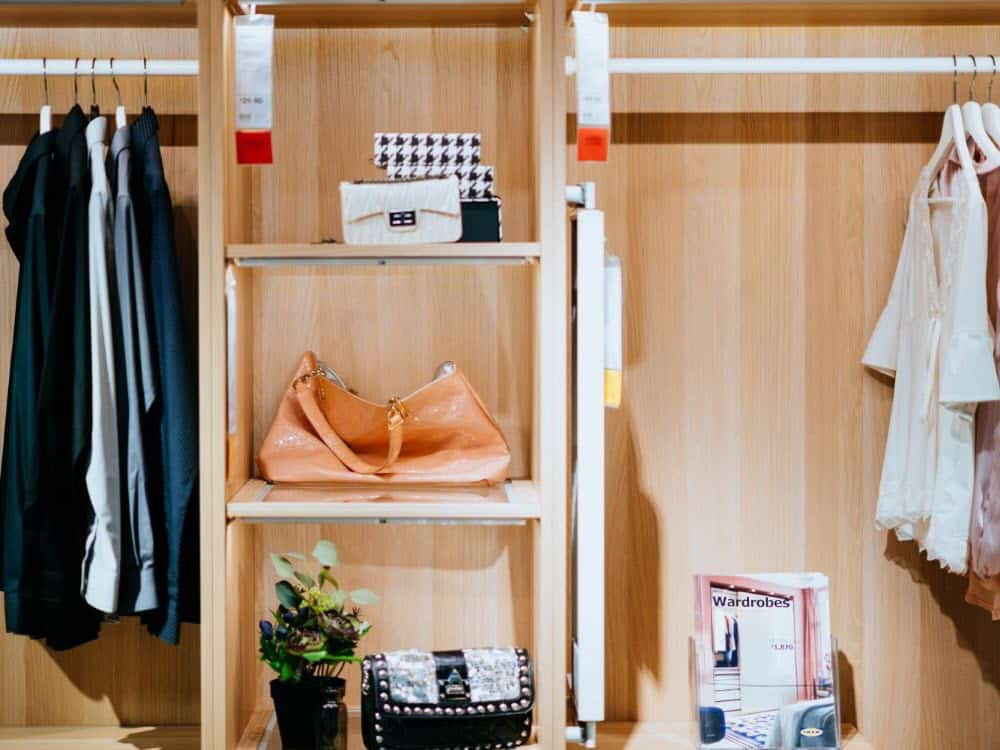
by Nick Sturgeon | Nov 7, 2019 | Declutter
If you have become a clutter junky over time, then this journey is going to require you to be brave as we move along a path towards a home with less burden and more joy, to a place where you know what you have and where it is. If you simply have more stuff than you need to live a happy and fulfilling life, and cupboards and wardrobes bulging with stuff you neither use nor wear, then you will enjoy the practical satisfaction and emotional relief that comes with the letting go of the unwanted, the unneeded and the undesirable ’stuff’ that is clogging the arteries of your living space.
Imagine the pleasure of coming home to a place where everything has its place and you know precisely where that place is. How much time do you lose in the course of just a week looking for things that are no longer where you imagined them to be and in struggling to consider how you might find them? Imagine also what might happen if, within your accumulated record of your life history, you find and reconnect with items that are in good order and have a value to someone else, that can be sold via online sites and where you can receive the financial value of such things with relative ease.
Always a book collector or addict, I have struggled to leave a bookshop without buying something that looked great, but which I might not get around to reading. So the day I came home from bookshop, having browsed a title dealing with creating a tidy home, and without a new book in my hands was a real turning point for me.
I came through the front door and said “We have to do something. I realise the level of my hoarding and am really embarrassed about it.” I was genuinely distressed at how out of control my book addiction had become and had fixated on this thought since driving back from the book store. My partner is kind and caring and understood. She simply said “I’ve been waiting for you to realise this, my love”, and gave me the biggest and most understanding hug. In that simple moment was born the start of our plan to declutter and live a lighter life, one without the burden of the clutter and the chaos it brings.
What is it that you collect, gather around you as if it is going out of fashion or as if it will never be available again? Is there a theme or trend to what you bring home and hoard? By identifying and understanding these patterns of hoarding and gathering clutter, you are half way to recovery. Knowing what is getting in your way is what you have to discover for yourself in order to become free of the clutter bug.
Be kind to yourself as you work through the ideas behind your gathering junk, building a collection, creating a bunch of ‘treasure’ - at least in your eyes - and make some steps to break the addiction.
You can do this, but just take it one day at a time.
Why do we gather clutter?
The reasons are many and often complicated and the exploration of these is going to open up that proverbial ‘can of worms’ as we work through these together. The power of emotions has the greatest hold on us as we delve into this topic and some of the reasons will astound you. At the very least you will be surprised by some of the learning you make in the process. Ask yourself :
“Why do I have Grandpa Tom’s hand built coffee table in my life?”
“Does the clock on the wall that was on a mantelpiece in my long-dead Aunty’s house need to have a place in my own living room, some twenty years after she passed?”
“Does the team football photograph that showed my Dad as a young man about to leave school seventy years ago need to be on the wall in my hallway?”
“Just because I was given a hand painted teapot and matching cups and saucers by my best man and his wife when we first married twenty five years ago - and divorced after twelve years - should I still have this on the shelf in my kitchen? Especially when I have not used it in the two years since we took it out of the box it was found in?”
These are random questions that I use from my own example of clutter and accumulated items in the challenge that we set ourselves at home. I am sure you can easily find your own relevant examples of things around you.
Here are a couple of simple questions for you today, intended purely to help you find your place in all of this.
Do you consider that you have all your possessions under control?
When you see the clutter in your house, whether on display in the common areas and daily used rooms of your home, or stuffed awkwardly into the lesser observed areas of cupboards, attics, basements or boxes in the garage, how does that make you feel?
Enough said! Your clutter is personal to you and your lifestyle as well as to your attitude and approach to life. Millions of other people live with everything they own under one roof and they experience no guilt or upset. But this exploration of letting go is not about them. I have confessed my own situation and how I felt that so many material things were draining my energy and time. The things we bring into our home space should be there because they make tasks easier or to bring us happiness. Where our possessions become so many that they are more than we can manage and they start to distract us from living the life we should be enjoying, this is where the trouble begins and the stress begins to wear us down. We work longer hours and spend more of our disposable income just to keep the possessions under control by such things as storage, insurance and taking on bigger and more costly spaces to live in.
Quite naturally, we need to place much of our focus on our home, on our living space and the things within it. But a full approach to letting go requires that we don’t just limit ourselves only to mess and chaos, to clutter and junk as they appear in your physical world. We will also explore the damage that comes from being connected with toxic people, the distraction of digital clutter and the overwhelm that can come from addiction to gathering more around you than you need.
To answer the question of “Why do we gather clutter?” we do this because we are human. We do it because we feel we need to collect things around us so that we can make statements such as these :
“I am safe now”.
“They are not making this quality any more, so let’s get one now”.
“I can provide for my family”.
“I deserve to have this because I have gone through so much”.
“Do you know how much I had to work this month?”
“This was a bargain, so I had to get it”.
“We’ve been struggling recently so I figured we deserved this”.
Being human gives us a sense that we have to carve out our own identity in a world that is so often homogenised, identical, similar brand - different perspective, must-have, latest trend, special item, but really very much the same. We think that by surrounding ourselves with the things which reflect who we believe ourselves to be in the world, we will then create a space which feels unique to us. And when you first do this, starting to accumulate the things around you which make you feel good, it does seem like you are achieving the goal of originality. But at what cost, or better said, at what price?
What price have you paid to fill your home with the things that you have purchased in order to bring home and use to say “This coat is me” or “These books and this desk are me” or “This car is me”. Some of that is your own voice and heart talking. However, there will be a proportion of ‘stuff’ in your dwelling space which has got in there, easily or by pushing it’s way in, because of advertising, because of the cultural influence of your neighbourhood or peer group, of social media and what is or is not ‘on-trend’ this week. Letting go of this stuff will emotionally and physically open up space in your home. While it can seem like a push to make the decision to look at each thing we have and bag or box it for discarding or donating, the value of doing so is beyond measure.
As we go on this declutter journey together, there will be opportunities to work through various exercises and activities. All voluntary of course. One very probable realisation is likely to be that your early dreams and aspirations for what home should look like, but also feel like, will make themselves very clear to you. Some of these will have been completely forgotten over previous years, others will whisper gently and kindly to you and ask to be let back into your living space to reflect all those good aspects of you, your character and your values. Welcome them when you see them, as you surely will when you reduce the distraction that has been overwhelming your personal space.
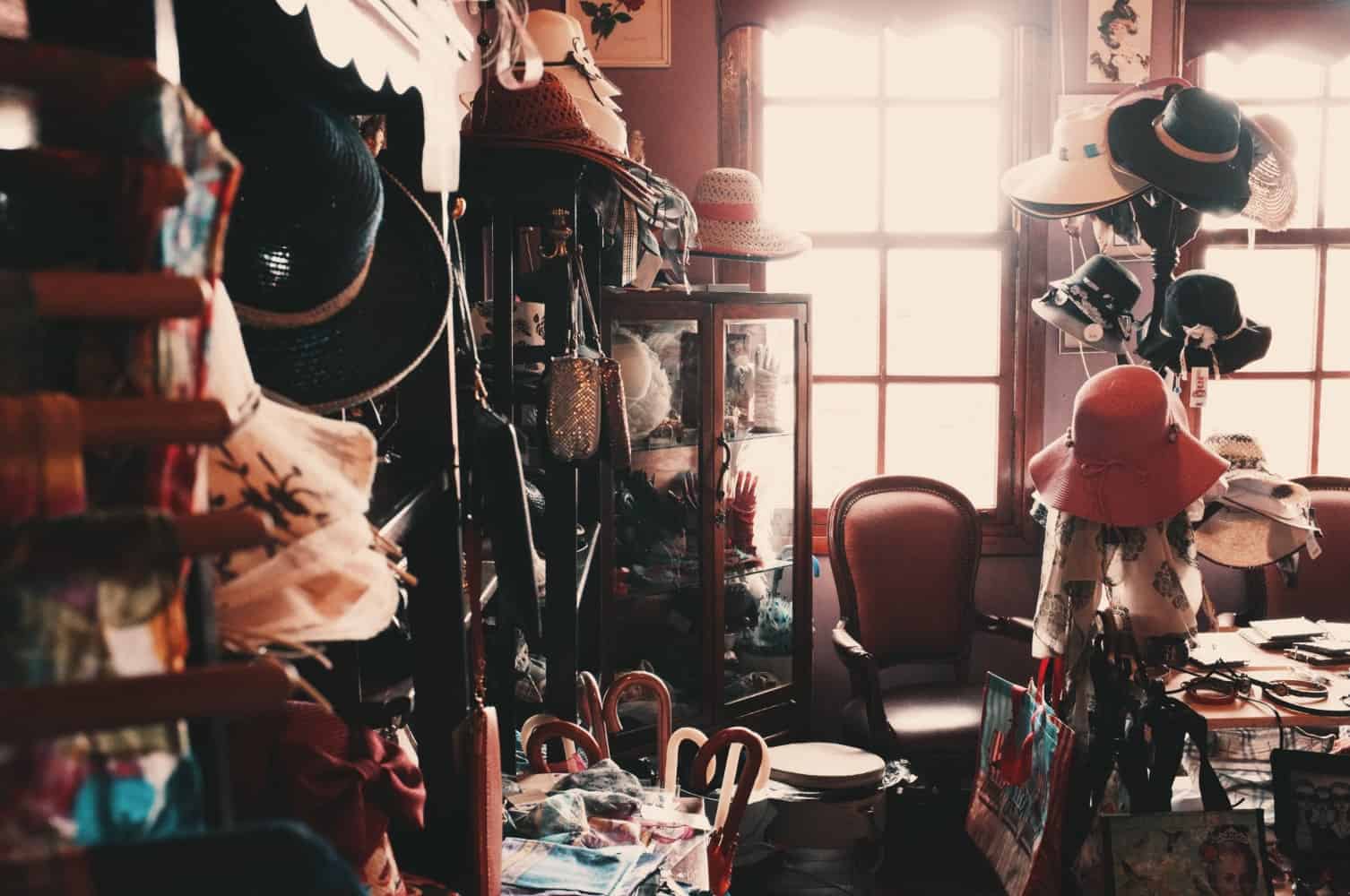
by Nick Sturgeon | Nov 7, 2019 | Declutter
The truth about a difficult situation can be a useful reminder that you need to make some changes. I once had ninety six boxes of clutter in my home. They occupied an entire room in our three bedroom house. I had allowed a third of our house to be utilised by packed and boxed clutter. On a building that cost us £1,200 per month the maths are easy to do. This figure is the cost of living in the building, and also includes insurance, utilities as well as decoration. That’s £400 per month of our outgoings spent each month on the storage value of my boxes, most of these containing books.
£4,800 a year over five years minimum or £24,000 that I have shelled out as a part of overall accommodation costs just to store several thousand books that I have not looked at or made any use of in that time. Boy, did this realisation make me feel stupid! It also caused me to feel sadness that I had not handled the situation well.
In your own place what have you got that takes up the equivalent of at least a full room in your house? Think about the value of the items that you have in that combined space where, if you were to box all the ‘stuff’ and stack those boxes, you would end up with a room filled from floor to ceiling. Take that room as a proportion of your property and identify the monthly cost of that building or space. It doesn’t really matter whether you rent or pay a mortgage. The cost you have is the cost. If the clutter is taking up 10% of your monthly accommodation budget then take that figure as you Cost of Clutter. If it is 20% then it is 20% of your expenditure. This fact should be enough to make you sit up and take notice all of a sudden.
I know you might say, “But Nick, don’t be hard on me! This is only filling the basement or a garage unit attached to the house.” Am I sympathetic to you? NO! Not at all. Am I empathetic to your situation? Yes, for sure I am. Having been through the process myself I am gong to explain this in a very straight forward way. I care enough to help you make the difference in your life that we finally had the courage to tackle in our own situation.
Whatever the cost, take a moment to see that same amount of money in your savings account and being available to you for fun activities, holidays, investment, travel and holidays. Those funds could be used to pay down or settle in full loans that you have and which you would like to be free and clear of. Consider the emotional relief that will come from taking such money and clearing those debts. You could buy possessions that you genuinely love and adore, and which might have an investment value as well as being functional and or beautiful in your living space. Items that you would benefit from seeing and using every day.
This will not be easy, but the journey you can make is a simple one. Explore the items in your house that bring you no benefit or which have fulfilled the function for which you originally bought them. This usage or non usage relates only to some of the clutter in your life. A lot more of it will be having an emotional cost to you. In the same way that I had in the back of my mind the subconscious sense of the emotional weight of those boxes of books, files and papers, so too will you also be carrying a burden associated with the stuff you are carrying about in your home space.
Reduce your clutter and enhance your life in the process!




